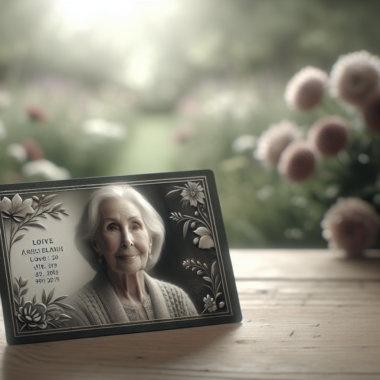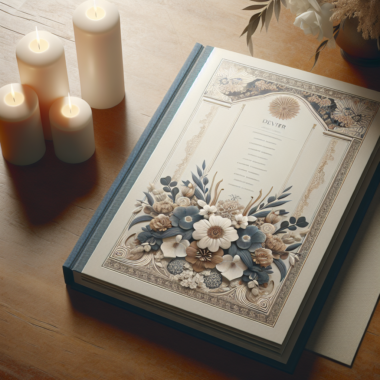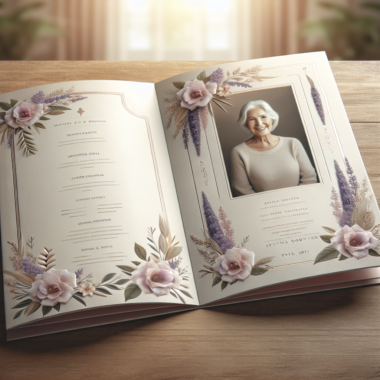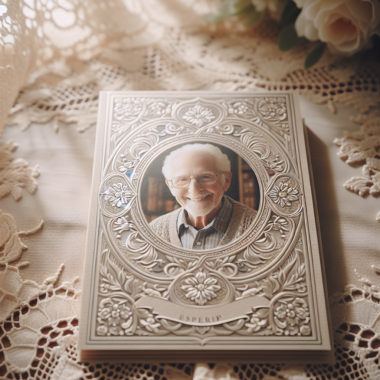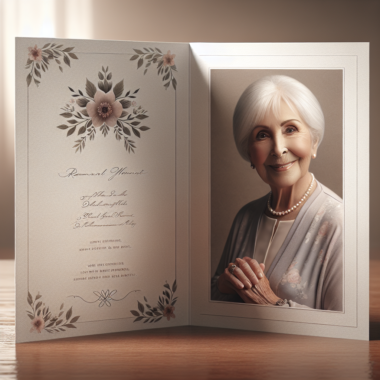Thank you cards serve an important purpose in acknowledging and expressing gratitude for the support received during times of loss. Following a funeral, these cards allow the bereaved to convey their appreciation for the sympathy, assistance, and kindness shown by friends, family, and acquaintances. The act of sending thank you cards can be therapeutic for those grieving, providing a structured way to reflect on the support they’ve received and helping to process their emotions.
These cards offer a formal means of recognizing various forms of support, such as attendance at the funeral, floral tributes, monetary donations, or practical help. They also serve as a lasting reminder to recipients of their meaningful contribution during a difficult time. For many cultures, sending thank you cards after a funeral is considered a social expectation and a sign of good etiquette.
The process of writing and sending thank you cards can be challenging for those in mourning, as it requires focusing on a task while dealing with grief. However, this act can also be beneficial, offering a sense of purpose and helping to maintain connections with supportive individuals during the grieving process. Some people find that expressing gratitude in this way can be a step towards healing and moving forward after a loss.
Key Takeaways
- Thank you cards at funerals are important for expressing gratitude and acknowledging the support and condolences received.
- When choosing printed thank you cards, consider the design, quality, and personalization options to best reflect the tone and sentiment of the message.
- Personalizing thank you cards with a handwritten note or a special memory can add a personal touch and make the recipient feel appreciated.
- Sending thank you cards within 2-4 weeks after the funeral is considered appropriate etiquette, and it’s important to acknowledge any gifts or gestures of support.
- Thank you cards should include a heartfelt message of gratitude, the recipient’s name, and a signature from the sender to express appreciation for the support received.
- Thank you cards can be used as a meaningful way to express gratitude and provide comfort to those who have shown support during a difficult time.
- Alternative ways to express gratitude at funerals include making a donation in the deceased’s name, creating a memorial tribute, or simply offering a sincere verbal thank you to those who have shown support.
Choosing the Right Printed Thank You Cards
Selecting the Right Printed Thank You Cards for a Funeral
Reflecting the Deceased’s Personality and Style
When choosing printed thank you cards for a funeral, it is essential to select a design that reflects the personality and style of the deceased, as well as the preferences of the bereaved. The design of the thank you cards should be tasteful and respectful, with options ranging from traditional and understated to more modern and personalized.
Considering the Tone and Mood of the Funeral
It is crucial to consider the tone and mood of the funeral when choosing the right printed thank you cards, as they should complement the overall atmosphere of the event. This ensures that the thank you cards align with the emotional tone of the occasion and provide a sense of cohesion.
Quality and Presentation Matter
In addition to design, it is vital to select high-quality printed thank you cards that are durable and well-crafted. The paper stock, printing quality, and overall presentation of the cards should be of a standard that reflects the significance of the occasion. It is also advisable to choose thank you cards that come with matching envelopes, as this adds a touch of elegance and cohesiveness to the overall presentation.
Considering the Bereaved’s Preferences
Ultimately, when choosing printed thank you cards for a funeral, it is essential to consider the preferences of the bereaved, as well as the overall aesthetic and tone of the event. By doing so, you can ensure that the thank you cards are a fitting tribute to the deceased and provide a sense of comfort to those who are grieving.
Personalizing Your Thank You Cards

Personalizing thank you cards for a funeral can add a meaningful touch and make them more special for both the sender and the recipient. There are various ways to personalize thank you cards, such as adding a personal message, including a favorite quote or scripture, or incorporating a photo of the deceased. Personalization can also involve selecting a design that reflects the interests, hobbies, or favorite colors of the deceased, adding a unique and personal element to the thank you cards.
Another way to personalize thank you cards is by adding handwritten notes or signatures from family members or close friends. This personal touch can make the recipients feel valued and appreciated, as it shows that time and effort were put into expressing gratitude. Additionally, including a personal anecdote or memory of the deceased can add warmth and sentiment to the thank you cards, creating a more personal connection with the recipients.
Personalizing thank you cards for a funeral allows the bereaved to convey their gratitude in a heartfelt and meaningful way, while also honoring the memory of their loved one.
Timing and Etiquette for Sending Thank You Cards
| Timing | Etiquette |
|---|---|
| Send thank you cards within 1-2 weeks of receiving a gift or gesture | Personalize each card with a heartfelt message and mention the specific gift or act of kindness |
| If receiving a gift by mail, send a thank you card within 1-2 weeks of receiving the gift | Handwrite the thank you card for a personal touch and sincerity |
| For late thank you cards, it’s better to send them late than not at all | Express gratitude and appreciation for the recipient’s thoughtfulness |
The timing of sending thank you cards after a funeral is an important consideration, as it reflects respect and appreciation for those who have shown support and sympathy. It is customary to send thank you cards within two to four weeks after the funeral, allowing sufficient time for the bereaved to process their emotions and gather their thoughts. Sending thank you cards in a timely manner demonstrates consideration for the support received and ensures that the gestures of kindness are acknowledged promptly.
When sending thank you cards after a funeral, it is important to adhere to proper etiquette by addressing each card personally and including a heartfelt message of gratitude. It is also customary to send thank you cards to those who attended the funeral, sent flowers or gifts, provided assistance, or offered condolences in any form. In some cases, it may be appropriate to send thank you cards to those who were unable to attend the funeral but expressed their sympathy in other ways.
Following proper timing and etiquette for sending thank you cards after a funeral is an essential way to express gratitude respectfully and thoughtfully.
What to Include in a Thank You Card
When composing a thank you card for a funeral, it is important to include specific elements that convey genuine appreciation and gratitude. The content of a thank you card should begin with a heartfelt greeting, followed by a sincere expression of gratitude for the support and kindness received. It is important to acknowledge the specific gestures of support, such as attending the funeral, sending flowers or gifts, providing assistance, or offering condolences.
In addition to expressing gratitude, it is thoughtful to include a personal touch in the thank you card by sharing a fond memory or anecdote about the deceased. This can create a more personal connection with the recipient and convey the impact of their support during a difficult time. It is also customary to conclude the thank you card with warm regards or a thoughtful sentiment that reflects appreciation and gratitude.
Including these elements in a thank you card for a funeral ensures that the recipients feel valued and acknowledged for their kindness and support.
Using Thank You Cards to Express Gratitude
Conveying Appreciation for Support
By using thank you cards to express gratitude, the bereaved can show their appreciation for the gestures of support, sympathy, and assistance received during a difficult time.
Aiding the Healing Process
In addition to expressing gratitude, thank you cards can also serve as a form of healing and closure for those who are grieving. Writing heartfelt messages of thanks can be therapeutic and can help in processing emotions while honoring the memory of the deceased. Thank you cards also allow for reflection on the outpouring of love and support received, fostering a sense of connection and gratitude during a challenging period.
Finding Solace in Kindness
By using thank you cards to express gratitude, the bereaved can convey their appreciation in a meaningful way while finding solace in acknowledging the kindness of others.
Alternative Ways to Express Gratitude at Funerals
In addition to sending thank you cards, there are alternative ways to express gratitude at funerals that can be equally meaningful and heartfelt. One alternative is to create a memorial or tribute in honor of the deceased, such as planting a tree, establishing a scholarship fund, or making a donation to a charitable cause in their name. This serves as a lasting tribute that not only honors the memory of the deceased but also expresses gratitude for the love and support received.
Another alternative way to express gratitude at funerals is through acts of kindness and service in honor of the deceased. This can involve volunteering for a cause that was meaningful to them, performing random acts of kindness in their memory, or organizing a community service project in their honor. These acts not only express gratitude for the support received but also serve as a meaningful way to honor the legacy of the deceased through positive actions.
Furthermore, expressing gratitude at funerals can also involve creating personalized keepsakes or mementos for those who have shown support. This can include creating photo albums, crafting handmade gifts, or compiling written tributes that capture cherished memories of the deceased. These personalized gestures serve as heartfelt expressions of gratitude while providing recipients with tangible reminders of their impact on the bereaved.
In conclusion, expressing gratitude at funerals through thank you cards or alternative means is an important aspect of honoring the memory of the deceased while acknowledging the love and support received from friends and family. Whether through personalized thank you cards or other thoughtful gestures, expressing gratitude serves as a meaningful way to convey appreciation while finding solace in honoring the memory of a loved one.
 Free Shipping Over $50
Free Shipping Over $50  888-432-8363
888-432-8363


 Obituary/Programs
Obituary/Programs No-Fold Memorial Programs
No-Fold Memorial Programs 4 Page Funeral Programs
4 Page Funeral Programs 8 Page Memorial Programs
8 Page Memorial Programs 12 Page Funeral Programs
12 Page Funeral Programs 16 Page Funeral Programs
16 Page Funeral Programs 20 Page Funeral Programs
20 Page Funeral Programs Tri-Fold Funeral Programs
Tri-Fold Funeral Programs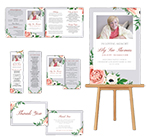 Complete Memorial Packages
Complete Memorial Packages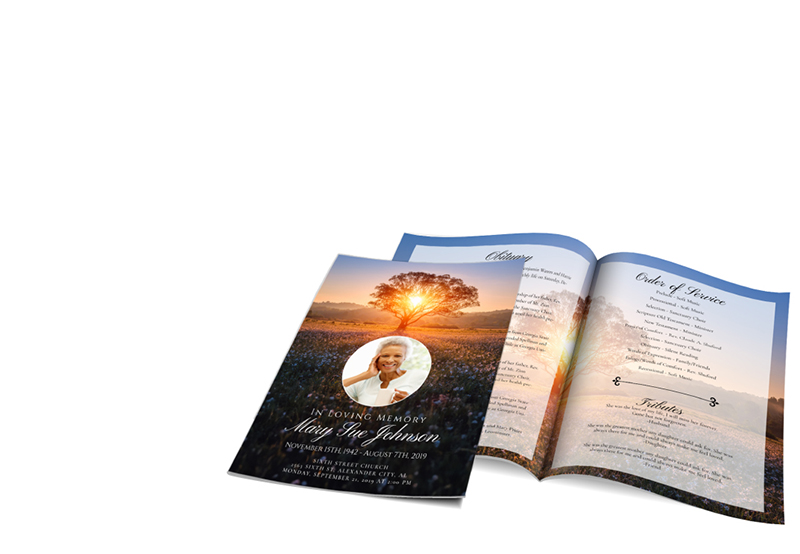
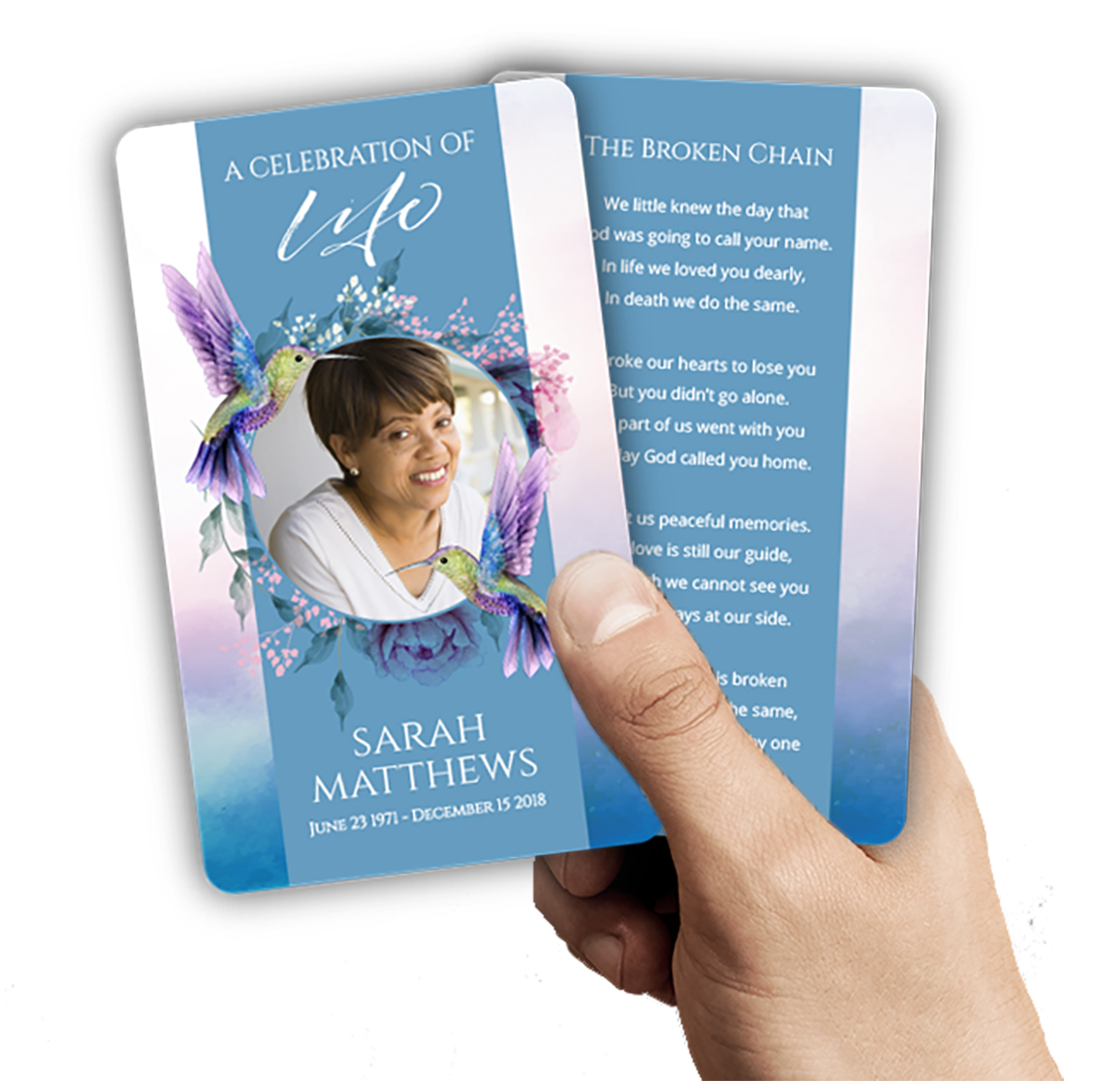 Cards & Bookmarks
Cards & Bookmarks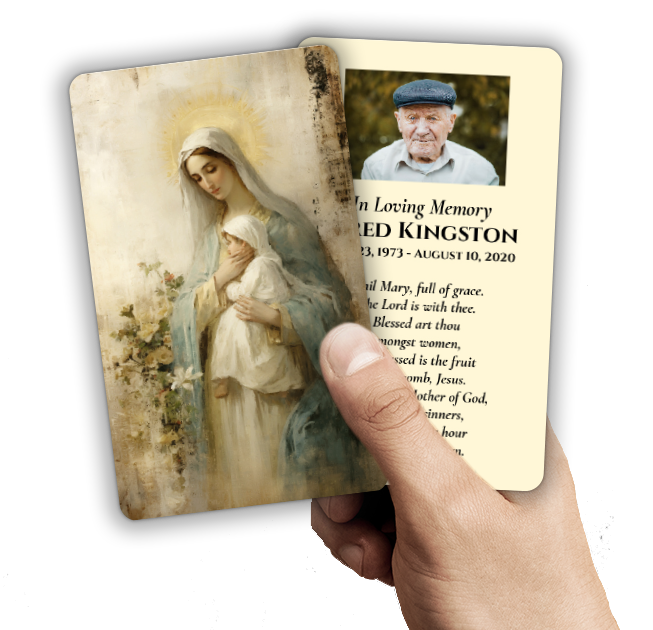 Saint Prayer Cards
Saint Prayer Cards Folded Memorial Cards
Folded Memorial Cards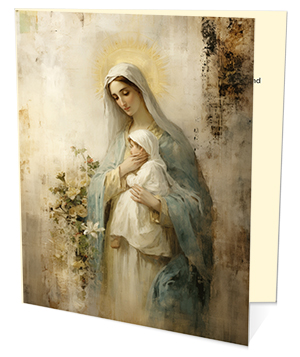 Folded Holy Cards
Folded Holy Cards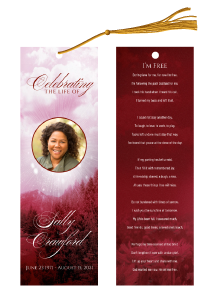 Memorial Bookmarks
Memorial Bookmarks Thank You Cards
Thank You Cards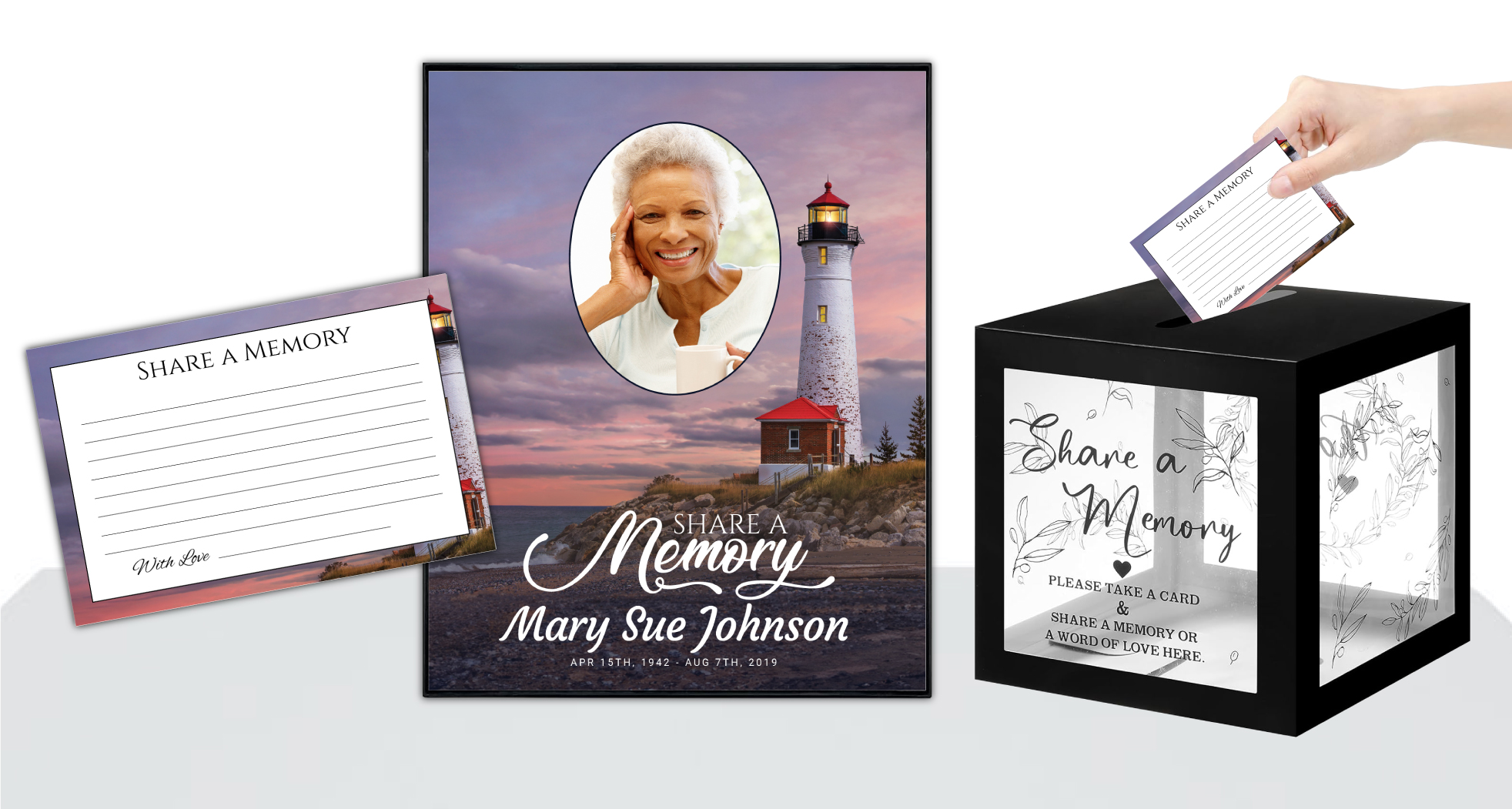 Share-A-Memory Cards
Share-A-Memory Cards Memorial Magnets
Memorial Magnets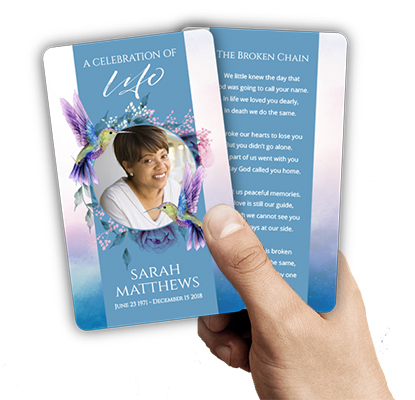
 Memorial Posters
Memorial Posters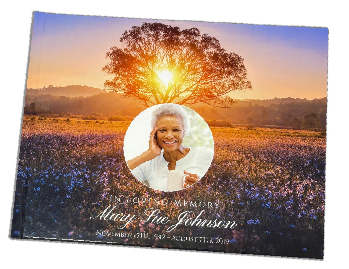 Guest Books
Guest Books Slide Shows
Slide Shows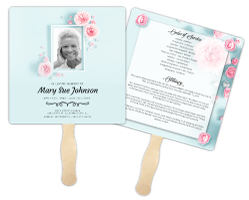 Memorial Fans
Memorial Fans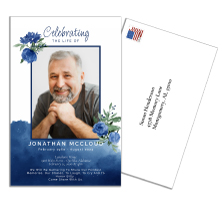 Death Announcements
Death Announcements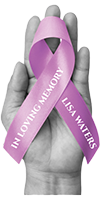 Take Away Keepsakes
Take Away Keepsakes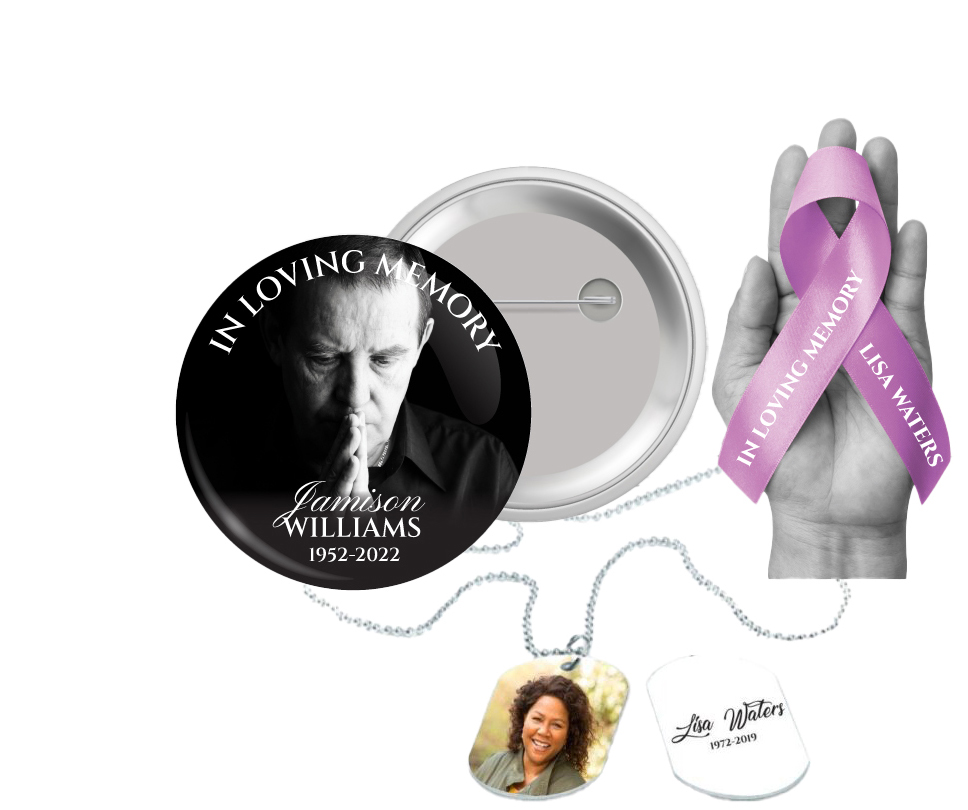
 Church Products
Church Products
